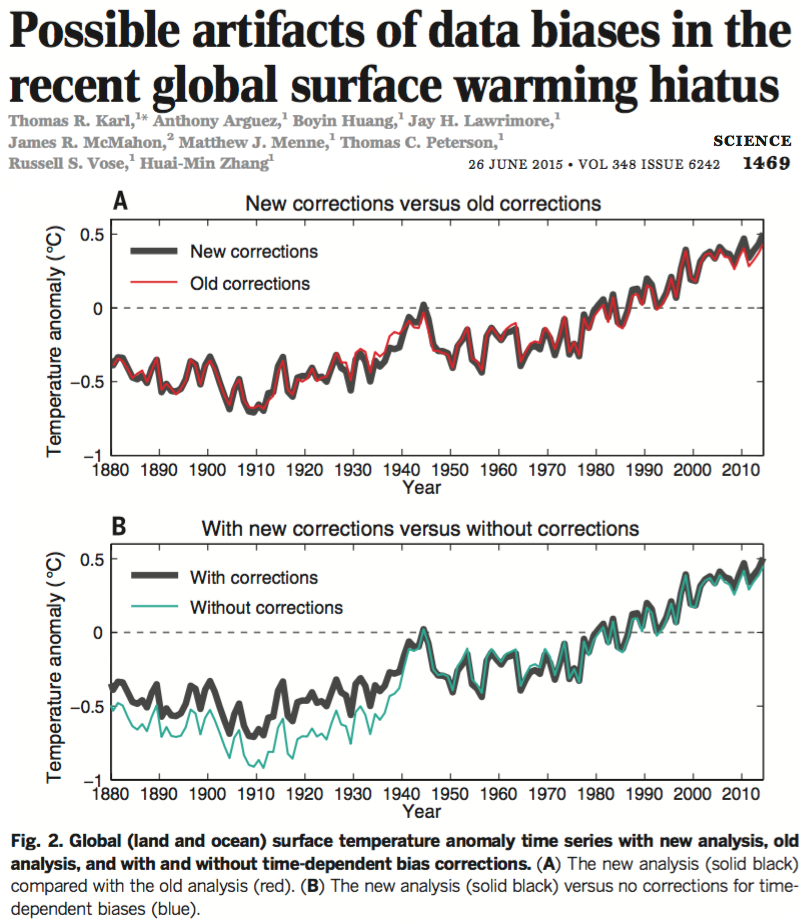This is, in part, a followup to the long essay I wrote last year: http://SolarNotBombs.org/
Thank you to James Corbett for replying to my question about NOAA’s 2015 study, Possible artifacts of data biases in the recent global surface warming hiatus, and public article, Science publishes new NOAA analysis: Data show no recent slowdown in global warming. NOAA’s new claim includes that “New analyses with these data demonstrate that incomplete spatial coverage also led to underestimates of the true global temperature change previously reported in the 2013 IPCC report.”
SHOW NOTES: https://corbettreport.com/the-global-warming-pause-explained/
Fact: the RSS global mean temperature anomaly dataset shows a least-squares linear regression trend of 0.0C from February 1997 to October 2015. But what does this really mean? And what is the significance of this global warming pause? Join me in today’s Thought For The Day as we explore this question.

While the pause is an important data point for potential falsification of the models, it is not as important as the growing discrepancy between the model projections and observed reality. NOAA’s reinterpretation of observational data sets should also inspire far less certainty in the modeling predictions. AKA, if the new study is more accurate, then the “scientific consensus” couldn’t even get the observations “right” as of 2013.
Also, this month Judicial Watch filed an FOIA lawsuit against NOAA regarding the recent study: https://www.washingtonpost.com/news/federal-eye/wp/2015/12/22/judicial-watch-sues-government-for-records-in-global-warming-dispute/
More details about What Is The Average Global Temperature: https://www.youtube.com/watch?v=eL-HyviLy6c
“Fact: the RSS global mean temperature anomaly dataset shows a least-squares linear regression trend of 0.0C from February 1997 to October 2015. But what does this really mean? And what is the significance of this global warming pause? Join me in today’s Thought For The Day as we explore this question.”
* * *
Fuck fossil fuels. But shifting away from them because of — and via measurement of — greenhouse gases can easily fail to address non-hypothetical environmental problems. Eg. fracking [allegedly] has a lower carbon footprint due to sequestration.
<3 morgan, http://SolarNotBombs.org/models-vs-data/
